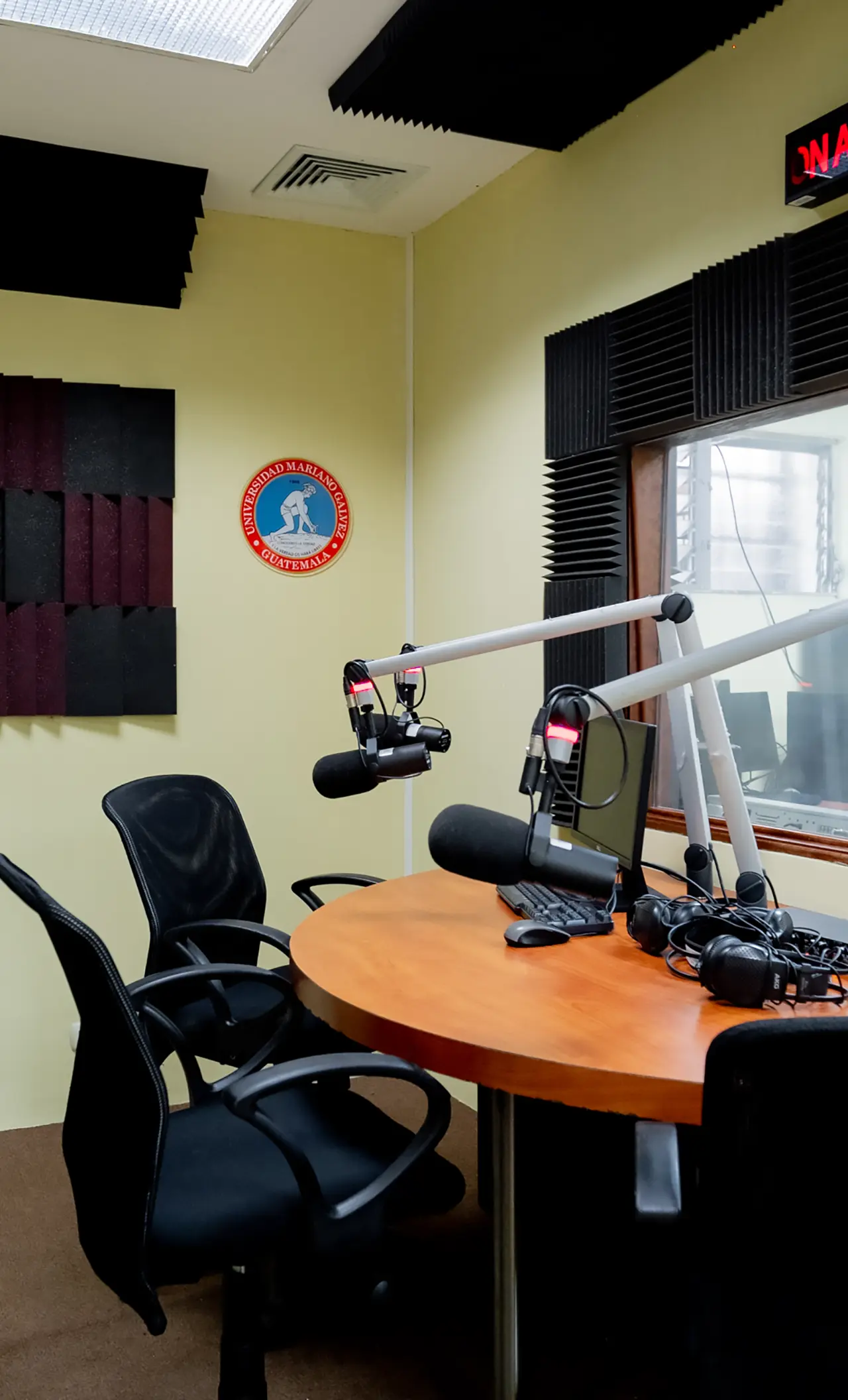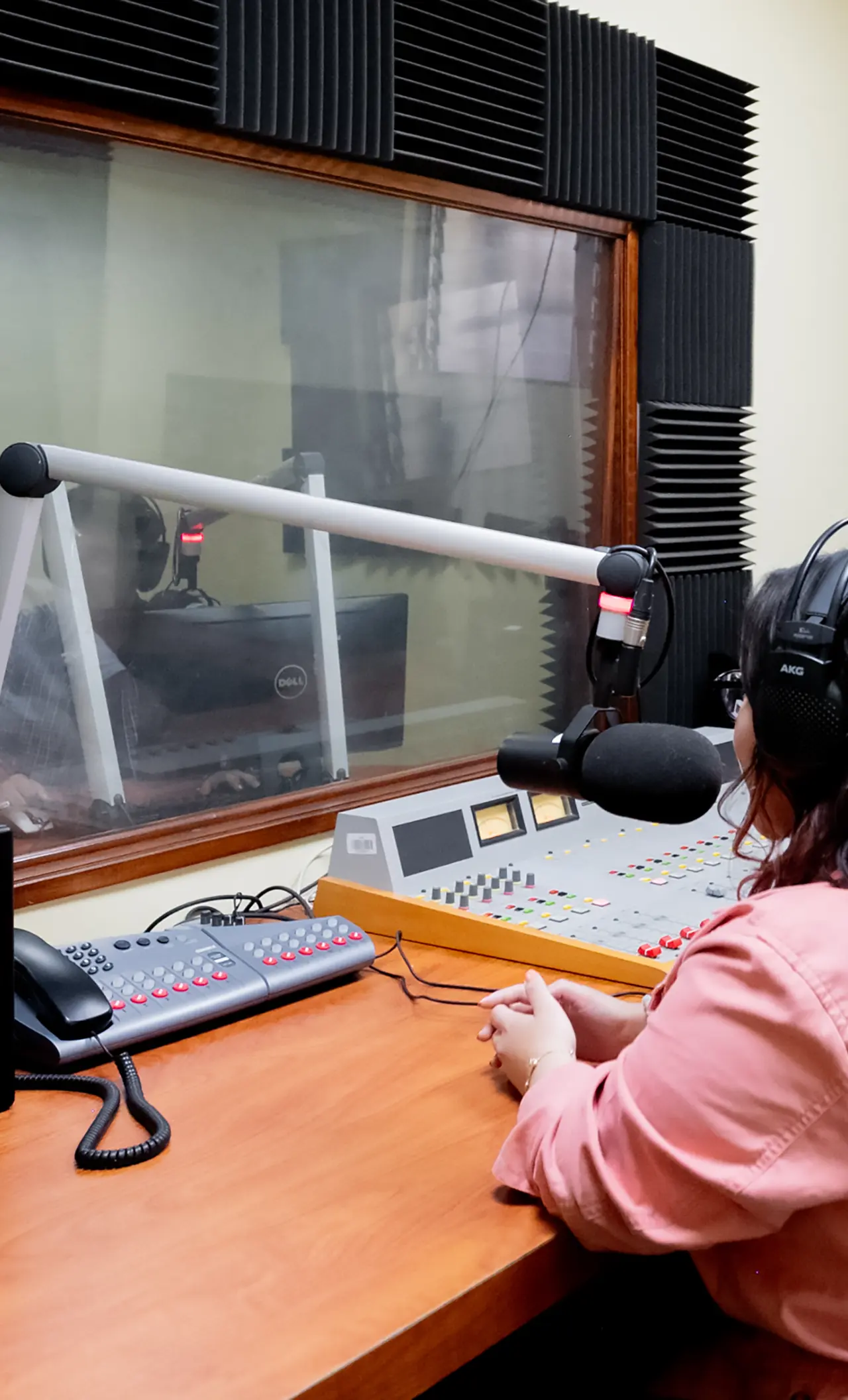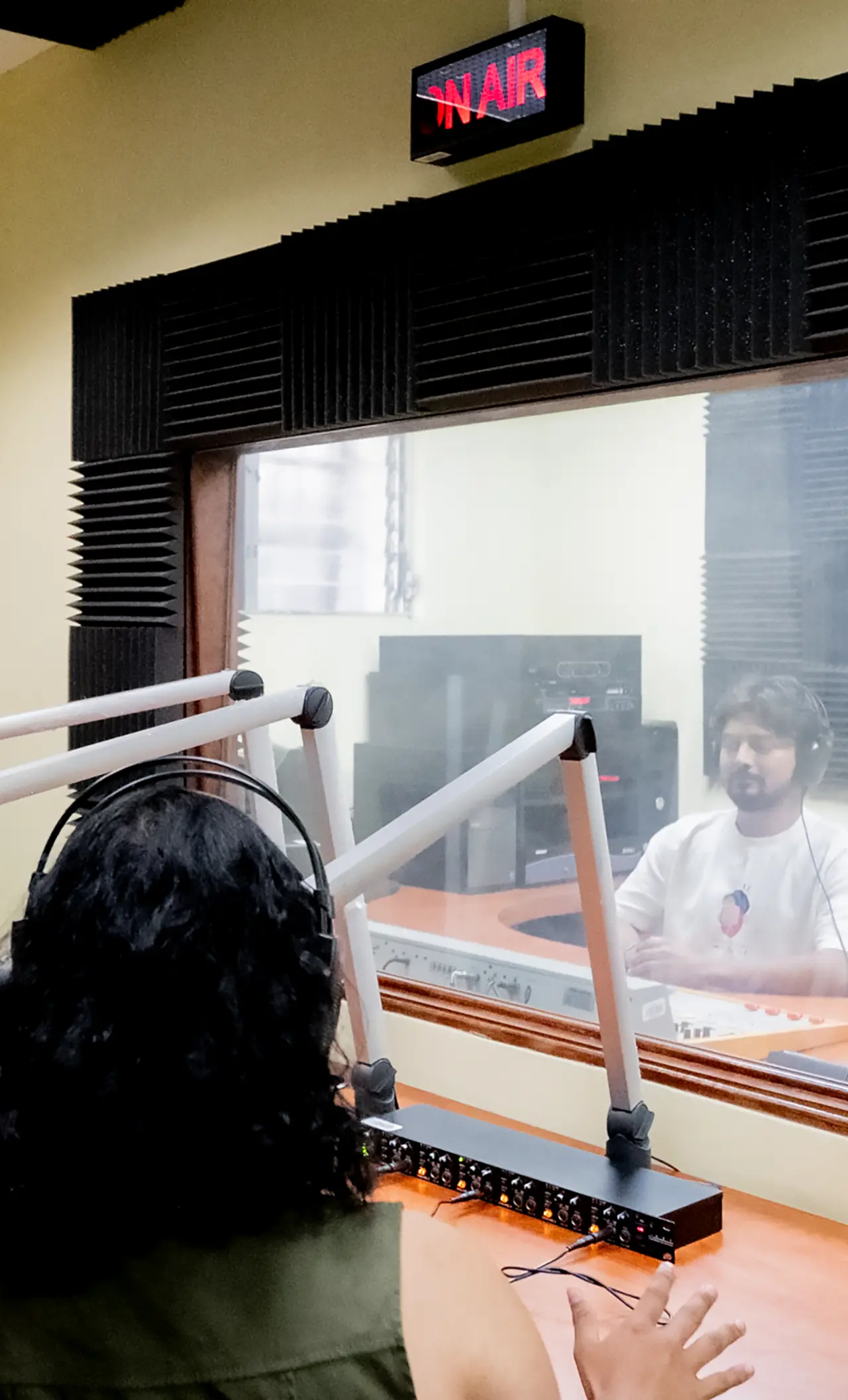
- Bachelor's Degree in
- Communication Sciences with Emphasis on Announcer
- Degree to be obtained
- Bachelor's Degree in Communication Sciences with Emphasis on Announcer
- Academic degree
- Bachelor's Degree
- Duration
- 4 years
- Modality
- In-person and virtual
- Schedule:
- Daily Afternoon y Saturday Morning Session
- Career description
-
Training of professional announcers with values, a high ethical and scientific sense to stand out in different media and formats, through the application of techniques and creative strategies that guarantee the effectiveness of their radio and multimedia production.
- What will you learn during the program?
-
The student is trained as a professional announcer.
The degree opens the door to an exciting future.
It provides the necessary tools to develop skills in announcer, radio, and television production, audio and video editing, digital animation, and more.
The audio studios and the online radio station, UMG Radio, are the fieldwork since the very first day.
Gallery
AdmissionProfile
Applicants to the Bachelor's Degree in Communication Sciences with an Emphasis in Announcer have interest in oral and written expression, as well as a deep interest in the study and practice of the media. The candidate is expected to demonstrate advanced communication skills, critical analysis, and creative thinking. An aptitude for working in a team environment is essential. A basic knowledge of information technology, and digital platforms is recommended. Finally, a clear and modulable voice is desirable.
Graduate'sProfile
They have the ability to research, analize, interpret and produce messages in different radio formats such as radiograms, news, interviews, narrations, sports descriptions, commercial spots, dubbing, animation, hosting, and others.
Career Opportunities

Director, editor, producer, producer, host, animator of radio and television program. Director of media, and social communication companies.
Curriculum
| 1° Ciclo | INTRODUCCIÓN A LA LOCUCIÓN | LENGUAJE I | REDACCIÓN Y ESTILO | TÉCNICAS DE ESTUDIO E INVESTIGACIÓN | TEORÍA GENERAL DE LA COMUNICACIÓN |
|---|---|---|---|---|---|
| 2° Ciclo | ARTICULACIÓN Y DICCIÓN | HISTORIA DE GUATEMALA | INTRODUCCIÓN A LA SEMIOLOGÍA | LENGUAJE II | METODOLOGÍA DE LA COMUNICACIÓN |
| 3° Ciclo | ADMINISTRACIÓN DE EMPRESAS | LEGISLACIÓN DE LOS MEDIOS DE COMUNICACIÓN SOCIAL | MODULACIÓN Y RESONANCIA | PERIODISMO RADIOFÓNICO | REDACCIÓN RADIOFÓNICA I |
| 4° Ciclo | INTERPRETACIÓN Y CARACTERIZACIÓN | LITERATURA GUATEMALTECA | REDACCIÓN RADIOFÓNICA II | SOCIOLOGÍA Y ANTROPOLOGÍA GENERAL | TEORIA E HISTORIA DEL ARTE |
| 5° Ciclo | ESTADÍSTICA | LITERATURA HISPANOAMERICANA | RELACIONES PÚBLICAS | TALLER INTEGRADO: RADIO REVISTA | TÉCNICAS RADIOFÓNICAS |
| 6° Ciclo | DESARROLLO HUMANO Y PROFESIONAL | LA RADIODIFUSIÓN Y LA TELEVISIÓN GUATEMALTECAS | LENGUAJE DE LA RADIO, TELEVISIÓN Y CINE | PRACTICA DE LOCUCIÓN | SEMINARIO I: DISCURSO Y TÉCNICAS PARA HABLAR EN PÚBLICO |
| 7° Ciclo | ADMINISTRACIÓN DE LOS MEDIOS DE COMUNICACIÓN | EPISTEMOLOGÍA DE LA COMUNICACIÓN | PSICOLOGÍA DE LA COMUNICACIÓN | TECNOLOGÍA DE LOS MEDIOS DE COMUNICACIÓN | TEORÍA GENERAL DE LA IMÁGEN |
| 8° Ciclo | ANÁLISIS DE INVESTIGACIÓN DE LOS MEDIOS DE COMUNICACIÓN | COMUNICACIÓN PARA EL DESARROLLO | OPINIÓN PÚBLICA | PERIODÍSMO INVESTIGATIVO | SEMINARIO II: DESARROLLO DE PROYECTOS DE COM. SOCIAL |
| 9° Ciclo | ANÁLISIS E INVESTIGACIÓN DE TEXTOS | ECOLOGÍA DE LA COMUNICACIÓN | HISTORIA DE LAS IDEAS CONTEMPORÁNEAS | RELACIONES INTERNACIONALES | TRABAJO DE ANTEPROYECTO DE GRADUACIÓN (TESIS I) |
| 10° Ciclo | COMUNICACIÓN ETNOLINGÜÍSTICA | DERECHO A LA INVESTIGACIÓN Y A LA COMUNICACIÓN | ÉTICA Y DEONTOLOGÍA DE LA COMUNICACIÓN | SEMINARIO III: ESTRATEGIAS DE COM. SOCIAL EN LA GEST DE PROY | TRABAJO DE INVESTIGACIÓN PARA GRADUACIÓN (TESIS II) |


